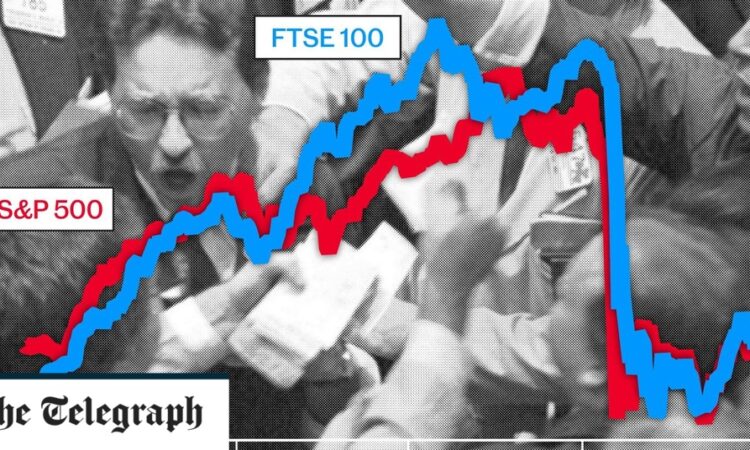
The bond markets are crashing around the world, just as they did in the run-up to the crash of 1987. Debts have been ramped up. The equity markets are overstretched, with company values stretched to the point of breaking in many cases. A seemingly indestructible bull market is coming to an end. It is not hard to see how that could end in a gale of destruction blowing through the markets.
If it came to pass, a market crash on the scale of 1987 would prove a cataclysmic political and economic event. It would send interest rates soaring, increasing costs for mortgage holders and for highly indebted companies, especially in the property sector. Business would fail and pension funds would be hard.
Perhaps most importantly of all, the already-high cost of servicing national debts would climb even higher. It would force profligate politicians to finally face up to the consequences of their wild spending.
There is plenty about the financial markets over the last few weeks that looks very similar to the late 1980s. There is, however, an important difference. Policy makers still had fiscal room to respond to the crash of Black Monday. After two decades of easy money, and constant buffering of the markets with quantitative easing to prevent a crash, that no longer exists.
It remains to be seen whether we witness a rerun of 1987. One point is certain, however: if we do, this time around it will be far worse.
Bond market blitz
Investors are beginning to fret about a repeat of Black Monday primarily because of a sell-off in the bond market, where companies and governments issue debt and promise a guaranteed rate of return. Usually a sleepy corner of financial markets, the bond market has been gripped by a wave of selling in recent weeks.
If you want a vivid illustration of the rout in the bond markets, the place to look is Vienna. At the height of the bull market in government debt, Austria very smartly launched a 100-year bond, and then reissued it in 2020. With a coupon of just 0.85pc, investors would have to wait a whole century to get their money back, and for all that risk and patience they would get less than a 1pc return.
Amazingly, in retrospect, the issue was 16 times oversubscribed as investors scrambled to give away their money for practically nothing until long after they were dead. And today? The bond has, perhaps not very surprisingly, crashed in value. If you sell it, you will get back only 33 euros for every 100 you invested.
Why anyone wanted to lend the Austrian government money for 100 years is perhaps a question that only psychologists can answer. What is certain is that the bond market has fallen in value on a spectacular scale over the last few months. The Austrian 100-year bond is an extreme example, but the value of most of the major bonds have fallen by between 40pc and 50pc over the last year, with the losses accelerating over the last month.






